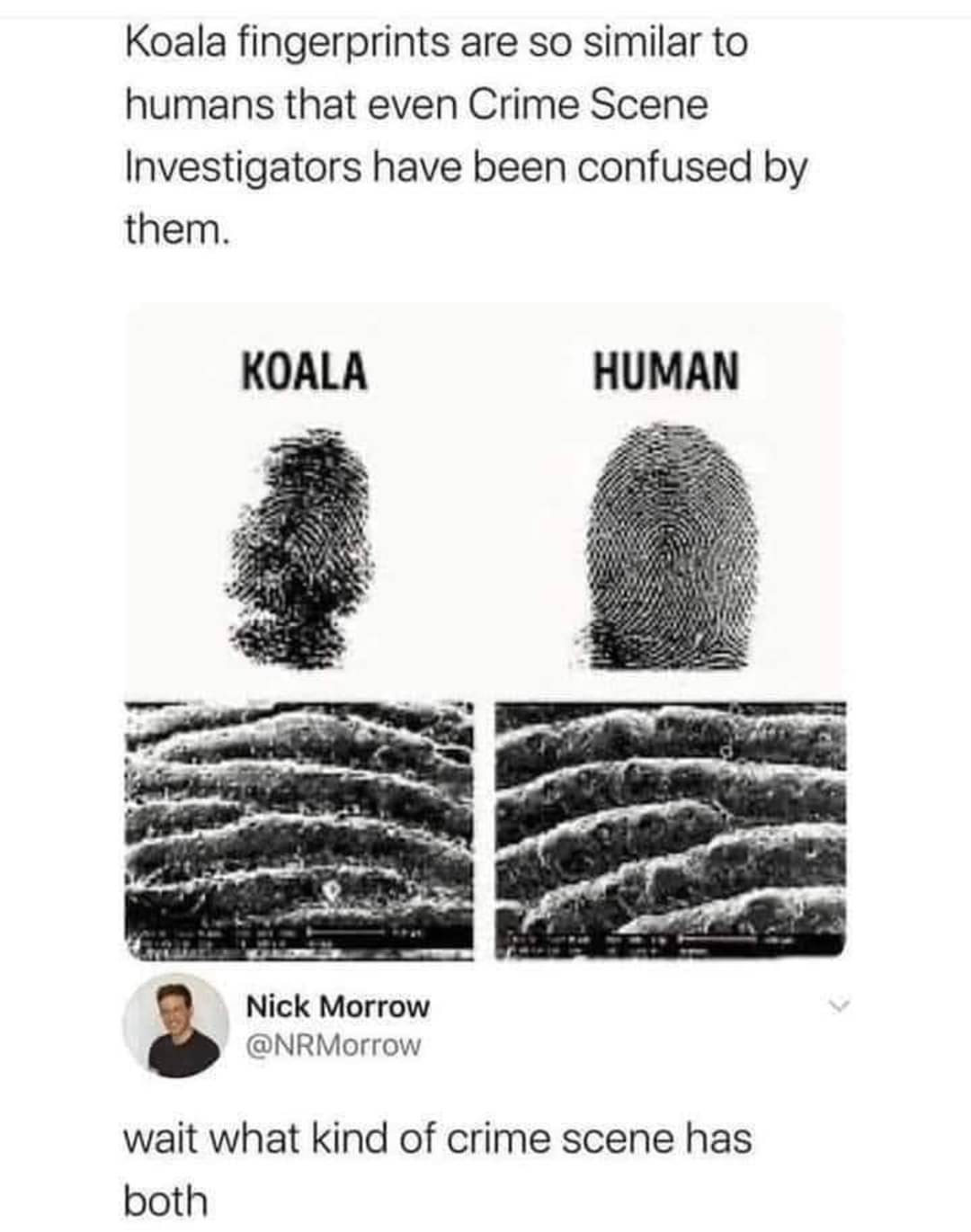this post was submitted on 17 Jul 2024
510 points (97.6% liked)
Science Memes
17089 readers
1927 users here now
Welcome to c/science_memes @ Mander.xyz!
A place for majestic STEMLORD peacocking, as well as memes about the realities of working in a lab.

Rules
- Don't throw mud. Behave like an intellectual and remember the human.
- Keep it rooted (on topic).
- No spam.
- Infographics welcome, get schooled.
This is a science community. We use the Dawkins definition of meme.
Research Committee
Other Mander Communities
Science and Research
Biology and Life Sciences
- !abiogenesis@mander.xyz
- !animal-behavior@mander.xyz
- !anthropology@mander.xyz
- !arachnology@mander.xyz
- !balconygardening@slrpnk.net
- !biodiversity@mander.xyz
- !biology@mander.xyz
- !biophysics@mander.xyz
- !botany@mander.xyz
- !ecology@mander.xyz
- !entomology@mander.xyz
- !fermentation@mander.xyz
- !herpetology@mander.xyz
- !houseplants@mander.xyz
- !medicine@mander.xyz
- !microscopy@mander.xyz
- !mycology@mander.xyz
- !nudibranchs@mander.xyz
- !nutrition@mander.xyz
- !palaeoecology@mander.xyz
- !palaeontology@mander.xyz
- !photosynthesis@mander.xyz
- !plantid@mander.xyz
- !plants@mander.xyz
- !reptiles and amphibians@mander.xyz
Physical Sciences
- !astronomy@mander.xyz
- !chemistry@mander.xyz
- !earthscience@mander.xyz
- !geography@mander.xyz
- !geospatial@mander.xyz
- !nuclear@mander.xyz
- !physics@mander.xyz
- !quantum-computing@mander.xyz
- !spectroscopy@mander.xyz
Humanities and Social Sciences
Practical and Applied Sciences
- !exercise-and sports-science@mander.xyz
- !gardening@mander.xyz
- !self sufficiency@mander.xyz
- !soilscience@slrpnk.net
- !terrariums@mander.xyz
- !timelapse@mander.xyz
Memes
Miscellaneous
founded 2 years ago
MODERATORS
you are viewing a single comment's thread
view the rest of the comments
view the rest of the comments

Australia, gotta watch out for those 'drop bears'. They'll getcha every time!
https://invidious.perennialte.ch/search?q=drop+bear
I do appreciate the meme but we did have real drop bears in pre-history
https://www.youtube.com/watch?v=Asz44Avm4Sg
Umm, says right in the title, Marsupial Lion. ;-) You mean this beast: https://en.wikipedia.org/wiki/Thylacoleo
Extinction Main article: Quaternary extinction event
Thylacoleo is thought to have become extinct around 40,000 years ago as part of the Late Pleistocene extinctions, essentially simultanteously with the vast majority of Australian megafauna. It has been contested as to the relative importance of climatic change vs the impact of recently arrived Indigenous Australians (who arrived in Australia around 50-60,000 years ago) in the extinctions.[42]
I say we need to be careful, maybe they just got really good at hiding.
yeah, I think they're hiding in the trees
Fiendishly clever!
https://www.researchgate.net/publication/259950515_Indirect_Tracking_of_Drop_Bears_Using_GNSS_Technology
This research will save lives from the drop bear peril!!
Indirect Tracking of Drop Bears Using GNSS Technology
Abstract Animal tagging and tracking has been a fundamental tool in the quest to increase our knowledge and understanding of biogeography and ecology for about 50 years. Monitoring animal populations is also necessary for conservation purposes and to limit negative effects on the human population, particularly in an era of human expansion into traditional animal habitats. The use of Global Navigation Satellite System (GNSS) technology has been responsible for significant advances in this field by providing the ability to obtain accurate, regular and frequent estimates of the changing distributions of many rare animal species. Employing conventional GNSS-based animal tracking methods to study drop bears is extremely difficult due to their habitat. The dense tree canopy regularly causes extended periods of complete GNSS signal loss, and sensors are often damaged during attacks on prey. This paper proposes an indirect, GNSS-based method for tracking drop bears. This involves tracking the prey rather than the predator in order to map the population of drop bears in a particular area. The method can be used to effectively estimate the number of drop bears in the study area. Analysis of the collected data provides valuable insights into the hunting behaviour of drop bears and has implications for a better understanding of the geographical distribution of other rare species, including hoop snakes and bunyips.